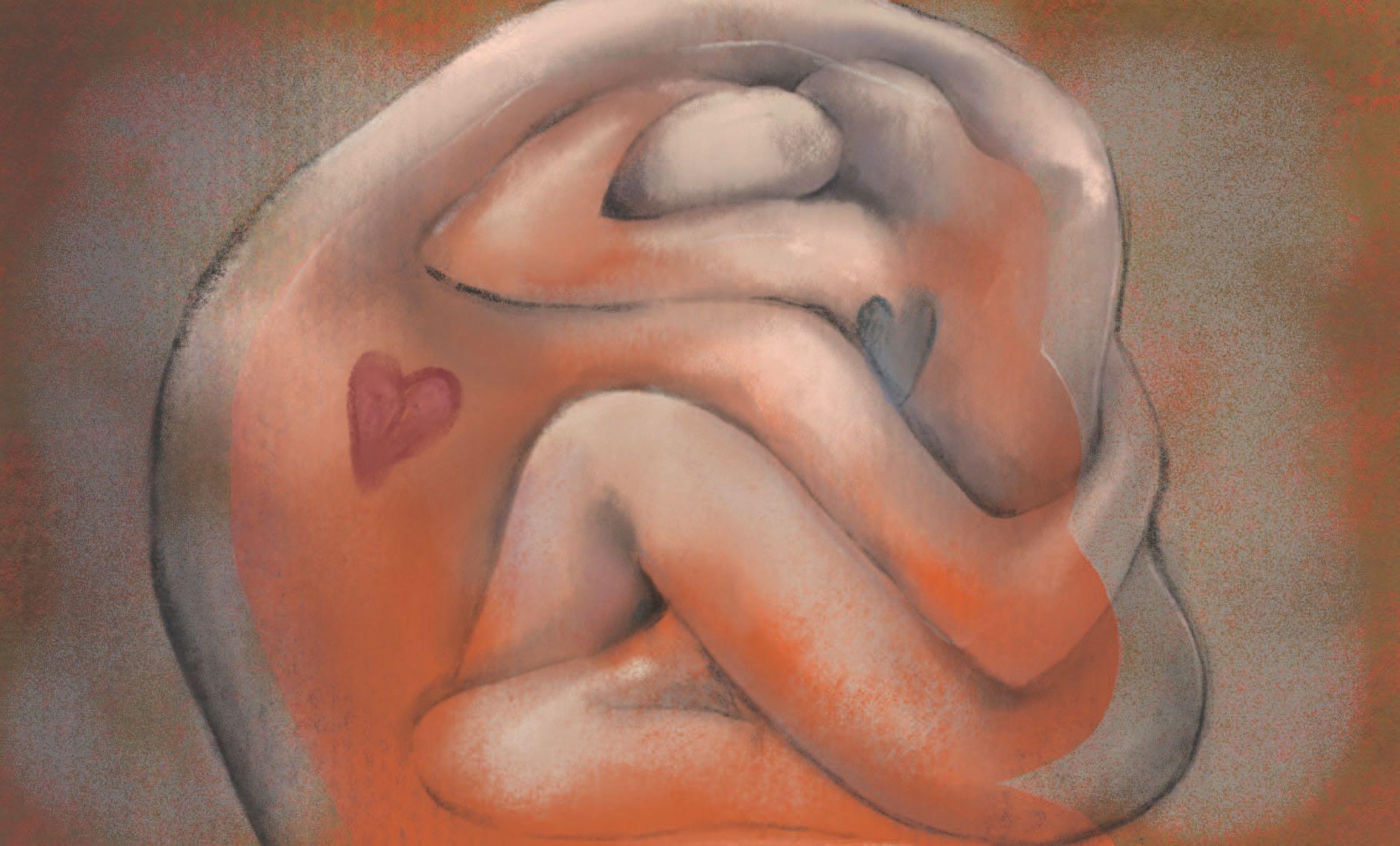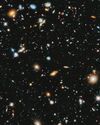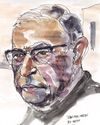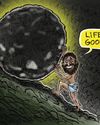
“where I does not exist, nor you, so close that your hand on my chest is my hand, so close that your eyes close as I fall asleep.”
Pablo Neruda, Sonnet XVII
In his dialogue The Symposium, Plato has Aristophanes recount his myth of the lovers. Human beings were once physically paired, Aristophanes says: creatures with two faces, four arms, four legs. In this form we were powerful enough to challenge the gods, and so Zeus split us forever in two. Condemned to this solitude, humans would wander the Earth searching for their lost halves, and on meeting them, “would throw their arms about each other, weaving themselves together, wanting to grow together.”
Aristophanes’ account speaks to a need still keenly felt today for an intimacy denied to us by the human condition: “Love is born into every human being; it calls back the halves of our original nature together; it tries to make one out of two and heal the wound of human nature.”
Diese Geschichte stammt aus der February/March 2024-Ausgabe von Philosophy Now.
Starten Sie Ihre 7-tägige kostenlose Testversion von Magzter GOLD, um auf Tausende kuratierte Premium-Storys sowie über 8.000 Zeitschriften und Zeitungen zuzugreifen.
Bereits Abonnent ? Anmelden
Diese Geschichte stammt aus der February/March 2024-Ausgabe von Philosophy Now.
Starten Sie Ihre 7-tägige kostenlose Testversion von Magzter GOLD, um auf Tausende kuratierte Premium-Storys sowie über 8.000 Zeitschriften und Zeitungen zuzugreifen.
Bereits Abonnent? Anmelden

The Two Dennises
Hannah Mortimer observes a close encounter of the same kind.

Heraclitus (c.500 BC)
Harry Keith lets flow a stream of ideas about permanence and change.

Does the Cosmos Have a Purpose?
Raymond Tallis argues intently against universal intention.

Is Driving Fossil-Fuelled Cars Immoral?
Rufus Duits asks when we can justify driving our carbon contributors.

Abelard & Carneades Yes & No
Frank Breslin says 'yes and no' to presenting both sides of an argument.

Frankl & Sartre in Search of Meaning
Georgia Arkell compares logotherapy and atheistic existentialism.

Luce Irigaray
Luce Irigaray, now ninety-two years old, was, among many other things, one of the most impactful feminists of the 1970s liberation movements - before she was marginalised, then ostracised, from the francophone intellectual sphere.

Significance
Ruben David Azevedo tells us why, in a limitless universe, we’re not insignificant.

The Present Is Not All There Is To Happiness
Rob Glacier says don’t just live in the now.

Philosophers Exploring The Good Life
Jim Mepham quests with philosophers to discover what makes a life good.